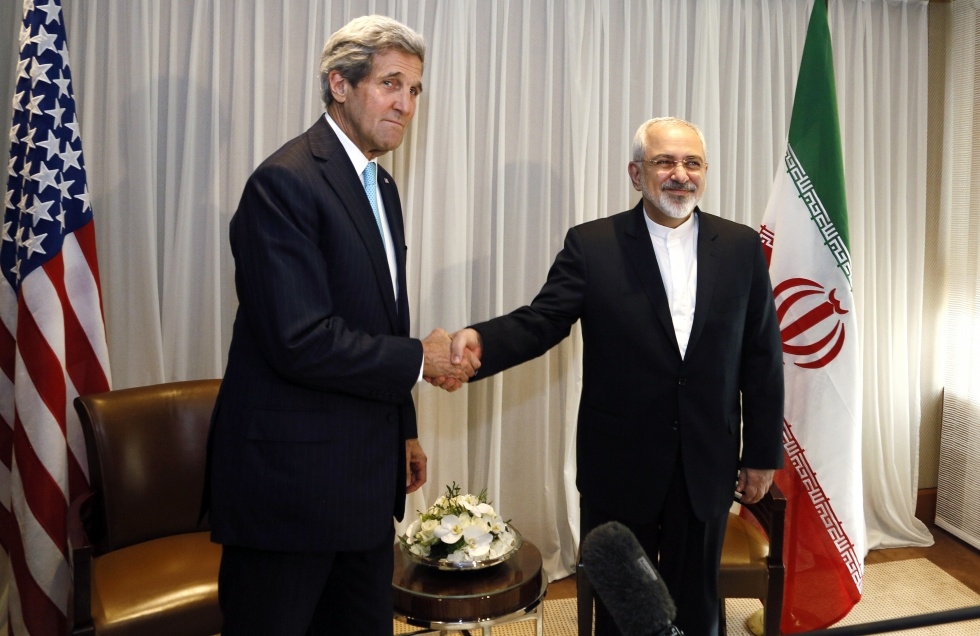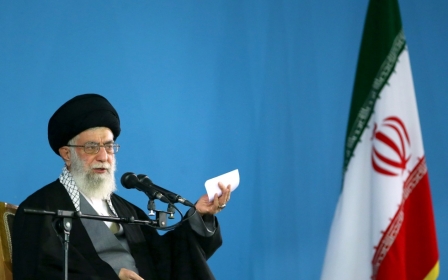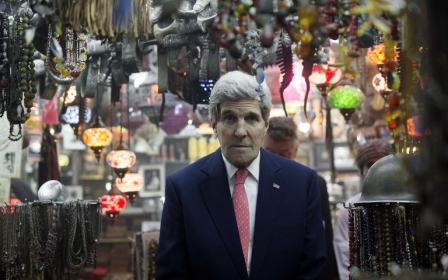US, Iran in bilateral meeting in Davos: official

DAVOS, Switzerland - US Secretary of State John Kerry and Iranian Foreign Minister Mohammad Javad Zarif met for bilateral talks Friday on the sidelines of the World Economic Forum in Davos, an official source told AFP.
"Secretary Kerry and Iranian foreign minister Zarif just concluded an hour-long meeting in Davos," a State Department source said, without providing more details.
The top-level meeting occurred as Iranian and US diplomats officially resumed talks in Switzerland on intensifying efforts to reach a deal on the future of Tehran's nuclear programme.
Two days of meetings between Iran's deputy foreign minister Abbas Araghchi and top US negotiator Wendy Sherman began Friday morning in Zurich.
EU political director Helga Schmid was also taking part in the meetings, he added.
The talks are taking place less than a week after Araghchi met with Sherman and representatives for five other global powers in Geneva in a bid to hammer out a comprehensive deal which would rein in Tehran's nuclear programme in exchange for relief from a tight network of sanctions.
Kerry and Zarif already met last week in Geneva and then again in Paris to discuss the nuclear negotiations.
Under an interim deal agreed in November 2013 by Tehran and the so-called P5+1 powers -- Britain, China, France, Russia, the United States plus Germany -- Iran has frozen its uranium enrichment in exchange for limited sanctions relief.
But two deadlines for a full accord cutting off Iran's alleged ambition to build an atomic bomb have been missed.
Among issues complicating negotiations are hardliners in Washington and Tehran who appear willing to torpedo the efforts.
The new Republican-controlled US Congress is considering a fresh sanctions bill, despite strong opposition from President Barack Obama, who has threatened to veto any such legislation.
Speaking in Davos, Zarif warned the US Congress on Friday against imposing new sanctions, saying this would lead to a collapse of negotiations.
If a sanctions bill does go through, some Iranian lawmakers have hinted they will push to retaliate by resuming unlimited uranium enrichment.
Top European diplomats on Thursday appealed for US lawmakers to hold off on the threatened new sanctions, pleading for time to allow the nuclear talks to succeed.
The US government's efforts to push towards a deal have meanwhile been complicated further by Israeli Prime Minister Benjamin Netanyahu's plans to address Congress next month.
Netanyahu has called Iran's nuclear push the most "vital national security challenge" his nation faces, and Obama's allies fear his trip could be used by Israel and the Republicans to rally opposition to a nuclear deal.
New MEE newsletter: Jerusalem Dispatch
Sign up to get the latest insights and analysis on Israel-Palestine, alongside Turkey Unpacked and other MEE newsletters
Middle East Eye delivers independent and unrivalled coverage and analysis of the Middle East, North Africa and beyond. To learn more about republishing this content and the associated fees, please fill out this form. More about MEE can be found here.



